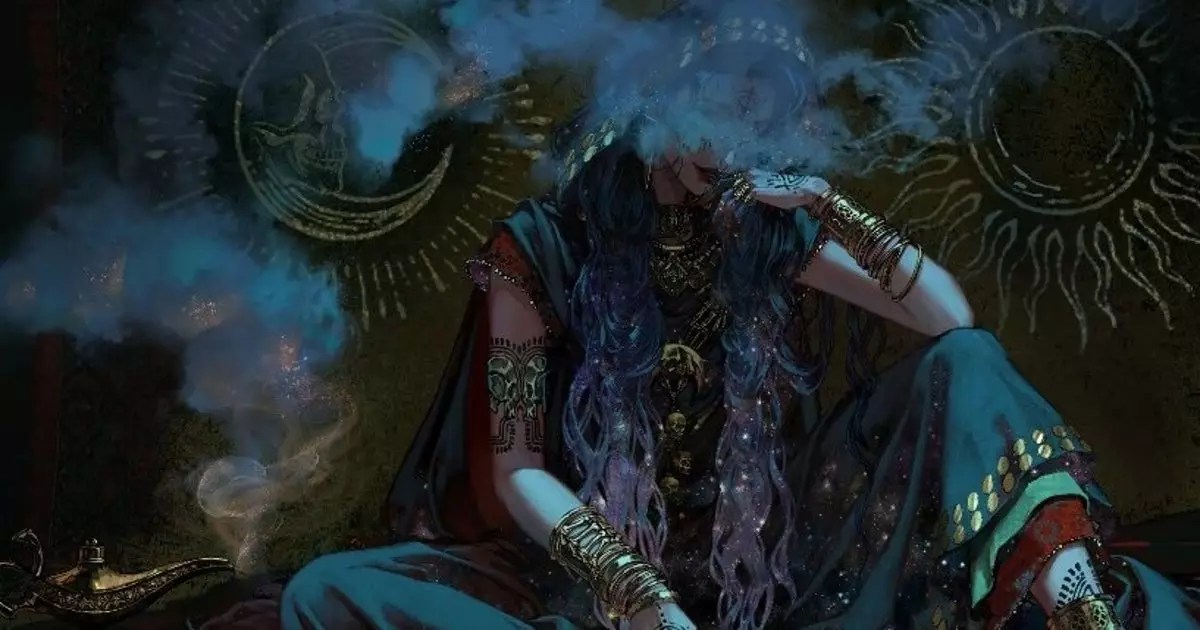In the ever-evolving landscape of indie games, *Sultan’s Game* emerges as a perplexing yet captivating experience. It is a title that demands both time and mental engagement, weaving a narrative that feels remarkably rich while being hauntingly complex. Engaging with its Steam demo left me at a crossroads of fascination and bewilderment. The game tends to be daunting due to its intricate strategy and perplexing mechanics, but therein lies its unique charm. As I delve into its depths, I hope to elucidate both its merits and its pitfalls in an attempt to glean a deeper understanding.
At first glance, the game boasts a striking aesthetic that feels reminiscent of *Hades* with its vivid color palette and alluring art style. Yet it also calls to mind the ethereal works of renowned artist Yoshitaka Amano, with influences that echo the fantastical narratives found in *One Thousand and One Nights*. This visual appeal serves to set the tone for a rich tapestry of storytelling. Complementing this is an enchanting soundtrack that enhances the atmosphere, pulling players deeper into its whimsical, if morally ambiguous, world.
The narrative begins with the Sultan—an ennui-ridden monarch—who finds excitement only when a magician arrives bearing a deck of cards. Each card symbolizes a different facet of hedonistic ambition: pleasure, violence, dominance, and extravagance, each attached with its own numerical value that necessitates a personal sacrifice in the twisted game of power. This promising premise lays the groundwork for a compelling experience, albeit one that swiftly turns dark.
*Sultan’s Game* operates on a fundamental level of resource management, but it places its characters, namely the Sultan’s courtiers, in a morally fraught light. The experience becomes chillingly tangible as players realize that every character is not just an asset but a life subject to the Sultan’s whims. This dynamic creates an uneasy tension that mirrors *Frostpunk’s* resource allocation streak, where the needs of the many often determine the fates of the few.
The tutorial serves as an introduction to this disturbing play, allowing players to explore the Sultan’s ruthless strategy that involves brutal decisions. However, what distinguishes *Sultan’s Game* is that after the initial tutorial, players do not control the Sultan directly. Instead, they create their own character, equipped with their entourage, embarking on their narrative journey within this political labyrinth.
This is where the game morphs into a narrative-rich, worker-placement experience. Each player decision is layered with strategy; completing cards within a limited timeframe feels incredibly pressurizing. Fulfilling a request requires not only the right resources but also navigating through a web of social relations with the city’s inhabitants—often leading to surprising and convoluted outcomes. The interplay between actions and their repercussions adds a nurturing layer of depth to the narrative.
For instance, pursuing a `bloodshed` card forces players into a moral quagmire, requiring them to engage in preference-based decisions that influence not just their standing with the Sultan but the very fabric of their character’s existence. The constant juggling act of managing reputation and influence while attempting to fulfill the grim demands of the cards gives the narrative a compelling yet harrowing cadence.
One of the game’s most alluring aspects is its capacity to evoke an atmosphere of uncertainty. As players delve into the cards and their dreadful tasks, they may often feel the chilling pressure of the Sultan’s looming judgment. This suspense creates an addictive loop of intrigue, one that encourages numerous explorations as players attempt to unearth possible avenues of strategy and interaction.
Despite the potential for disorientation as the gameplay unfolds, there is a pulse of vibrant creativity that threads through the chaos. The rich tapestry of events encourages exploration and experimentation, leading players through an evolving narrative that is, at times, as unpredictable as it is darkly humorous.
Ultimately, *Sultan’s Game* stands as a testament to the blend of moral ambiguity and compelling storytelling within the realm of indie game development. Despite or perhaps because of its imperfections and complexity, it creates an experience that lingers long after the screen dims. While the learning curve can be steep and navigating its themes of violence and sacrifice is not for the faint-hearted, it undeniably offers an engaging excursion into a haunting world teeming with ideas. If players are willing to traverse the murky waters of moral depravity, they could very well discover a treasure trove of narrative depth that rewards persistence and curiosity.


Leave a Reply